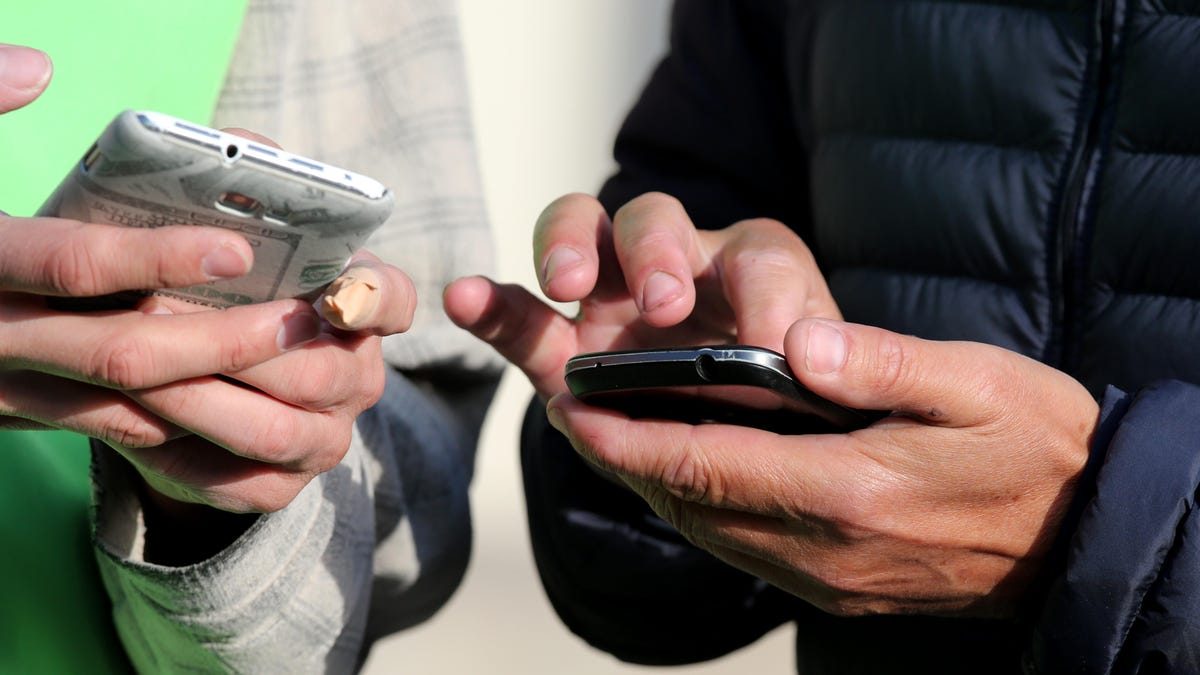Court nixes FCC rules targeting robocalls
The D.C. Circuit said Friday Obama-era FCC rules meant to curb unwanted robocalls went too far and could have led to anyone using a smartphone to violate the law.

A federal court ruled Friday that FCC rules expanding a law to protect consumers from unwanted telemarketing phone calls was so broad it could have meant anyone using a smartphone was a criminal.
A federal court has put the kibosh on FCC rules that were put in place to curb unwanted robocalls.
On Friday the US Court of Appeals for the District of Columbia struck down rules passed in 2015 under a Democrat-led FCC that expanded the Telephone Consumer Protection Act (TCPA), which bans the use of auto-dialers known as robocallers.
The court said that the expanded definition the FCC used for an autodialer was too broad. The ruling is a win for banks and credit card companies that say they were afraid of racking up penalties for calling their customers.
"This is a significant ruling," said David Schultz, a partner at Hinshaw & Culbertson who has worked on hundreds of TCPA cases. "The impact of this ruling on litigation is that it will make it much harder for people to sue under the TCPA because the scope of what is an ATDS (auto-dialer) has been significantly narrowed."
The FCC's rule defined an autodialer as any equipment that could dial numbers stored or produced "using a random or sequential number generator," which meant that a smartphone could be considered an autodialer.
Judge Sri Srinivasan, who wrote in the court's opinion, said that using this broad definition meant anyone texting or calling someone from a smartphone without "prior explicit consent" was violating the law.
"Imagine, for instance, that a person wishes to send an invitation for a social gathering to a person she recently met for the first time," he writes. "If she lacks prior express consent to send the invitation, and if she obtains the acquaintance's cell phone number from a mutual friend, she ostensibly commits a violation of federal law by calling or sending a text message from her smartphone to extend the invitation."
Because each call represents a violation of the law and could result in a $500 fine, Srinivasan continued that a person sending a party invitation to 10 different people could be on the hook for damages against her of up to $5,000.
FCC Chairman Ajit Pai, a Republican who opposed the expanded rules when he was a commissioner, praised the court's decision.
"As the court explains, the agency's 2015 ruling placed every American consumer with a smartphone at substantial risk of violating federal law," he said in a statement. "That's why I dissented from the FCC's misguided decision and am pleased that the D.C. Circuit too has rejected it."
Instead, Pai said the agency needs to focus on "targeting bad actors who bombard Americans with unlawful robocalls."
The current FCC has also made some effort to curb these annoying calls. In July the agency voted to evaluate a system that would let phone companies check if a number calling you is legit. This call authentication system could help improve third-party apps that allow consumers to block unwanted calls and allow phone companies to offer call blocking as a service.
It also voted to consider a proposal to prevent unwanted calls after a number has been reassigned to a different customer. Currently, legitimate companies that make telemarketing calls have no way of knowing if a phone number has been reassigned. This means customers who haven't given consent for marketing calls are getting them. It also means that legitimate companies making these calls to customers who don't want the calls are in violation of the law and are subject to stiff penalties.
But Democrats on the FCC, who supported the FCC's 2015 rules, have dismissed concerns that smartphones might be caught up in the autodialer definition. They argued in the past that it's unlikely that the law would be used in this way. And they say strict regulations are necessary to stop these calls. The FCC has reported it gets more than 200,000 complaints each year about unwanted calls.
FCC Commissioner Jessica Rosenworcel, one of two Democrats on the commission, said the court's decision would likely increase the number of unwanted robocalls Americans get.
"Robocalls are already out of control," she said in a statement. "One thing is clear in the wake of today's court decision: robocalls will continue to increase unless the FCC does something about it. That means that the same agency that had the audacity to take away your net neutrality rights is now on the hook for protecting you from the invasion of annoying robocalls."
Security: Stay up-to-date on the latest in breaches, hacks, fixes and all those cybersecurity issues that keep you up at night.
Blockchain Decoded: CNET looks at the tech powering bitcoin -- and soon, too, a myriad services that will change your life.

